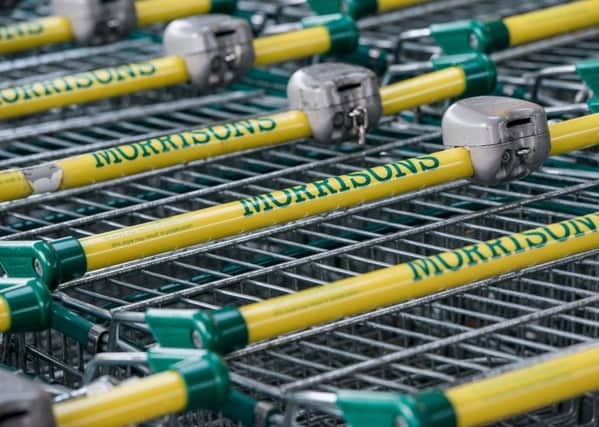Fall-out from supermarket price wars hits suppliers


There were 1,414 such businesses registering “significant” financial distress in the first three months of 2015, the survey from professional services consultancy Begbies Traynor said.
It added that the sharp rise showed that the knock-on effect of food retailing price promotions was “devastating” the embattled sub-sector.
Advertisement
Hide AdAdvertisement
Hide AdIn addition, the report said food retail businesses in significant distress jumped 66 per cent to nearly 4,700 in the first three months of this year, compared with the same quarter of 2014. The surge was 120 per cent among small and medium-sized firms (SMEs).
Meanwhile, in the broader Scottish economy, Begbies found 12,041 businesses in significant financial distress in the period – virtually identical to the 11,989 in the previous quarter. The rise in distress in Scottish food and beverage manufacturing was 55 per cent.
The UK-wide survey claimed that the strategy of the big supermarkets to attempt trading turnarounds by slashing prices and delaying payments was “grinding many food suppliers and smaller high street grocers to the ground”.
It added that the introduction of the Prompt Payment Code in 2008 – meant to speed the settlement of bills by big businesses to suppliers – has had little effect.
Begbies Traynor partner Julie Palmer said: “With £1 deals for fresh produce goods such as bread and milk remaining a firm feature at the major supermarkets, it’s no wonder that suppliers lower down the food chain are struggling to achieve a fair price for their produce.”
She said that another problem continued to be wastage on farms as suppliers were hit by “last-minute order cancellations and over–zealous cosmetic specifications” set by the large supermarkets on what is the look of food that it will accept from farmers.
Palmer said that the upshot was “less established” food retailers and suppliers were “locked in a David and Goliath-style battle, although this time it appears David can’t win”.
The latest data comes as Tesco prepares to publish its full-year trading results tomorrow with a wide-ranging City consensus expectation from a statutory loss of £127 million to a profit of £1.6bn.
New Tesco chief executive Dave Lewis has announced major changes including multi-store closures.